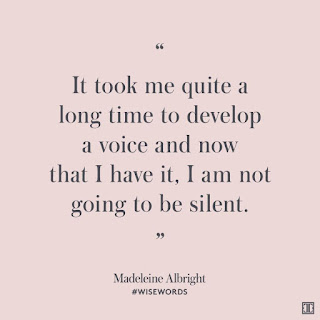Secrecy and Silence Protect Environments of Sexual Assault: How Parents Can Protect Their Children From Them
* This blog contains sensitive material which may not be suitable for minors.
With the news coverage of the secrecy and silence surrounding an international pandemic of sexual assault cases within a "faith-based closed system," it is important to revisit steps for Proactive Parenting in the protection of children and in the advocacy of victims.
For the purposes of today's blog, I am going to focus on Proactive Principle #2. Visit Proactive Parenting for Proactive Principle #1 . Tragically, because of on-going sexual assaults of students on our college campuses and universities, examples and statistics will be incorporated to illustrate specific concepts and principles. However, these concepts and principles apply to all "closed systems" where secrecy and silence protect environments of sexual assault.
Proactive Parenting Principle #2 is a tough one - rarely discussed but critically important. Again, integrate it into your mindset and apply it to your parenting style. Here we go. Let's look at how we can protect our children and prevent them from being at risk in predatory, secretive, closed environments or systems of abuse and/or assault.
#2 - The degree of innate trust ascribed to a closed system can be a reliable predictor of an abusive environment and/or where perpetrators carry out their dangerous agendas.
Before you read that again, I want to define two terms used in this principle:
With the news coverage of the secrecy and silence surrounding an international pandemic of sexual assault cases within a "faith-based closed system," it is important to revisit steps for Proactive Parenting in the protection of children and in the advocacy of victims.
For the purposes of today's blog, I am going to focus on Proactive Principle #2. Visit Proactive Parenting for Proactive Principle #1 . Tragically, because of on-going sexual assaults of students on our college campuses and universities, examples and statistics will be incorporated to illustrate specific concepts and principles. However, these concepts and principles apply to all "closed systems" where secrecy and silence protect environments of sexual assault.
- Innate trust - This kind of trust comes with the entitlement given to the trustor accompanied by the natural subjection or compliance of the trustee. This kind of trust usually carries with it a power differential. Examples are parent- child; pastor - parishioner; coach - athlete; mentor - student; doctor - patient. Tragically, as with many sexual assaults - on-campus perpetrators are usually someone the victim knows and trusts.
- Closed system - This is a term which refers to any kind of family unit, organization, place of worship, or any type of grouping of individuals where there is a system of rules or regulations in place (written or understood) which can be protective and constructive in nature but can also be secretive and isolating. A closed system typically has a person or persons of authority, power, or position who enforce or impose their rules or regulations. Given the hierarchy of some systems and their alliances, often times individuals in authority protect or cover up the offenses of the perpetrators. Examples include families; places of worship; children's teams, classrooms, organizations or clubs; or familial extended relationships or friendships. Horrifically, universities and colleges protect themselves first, before the victims. Victims, in fact, are discouraged from going to the police because colleges and universities do not want a public record. In 2012, 45% of colleges reported zero sexual assaults (Washington Post,2012), even though 1 in 5 women report being raped or sexually assaulted (The Hunting Ground, 2015).
With these explanations in place, read this again.
The degree of innate trust ascribed to a closed system can be a reliable predictor of an abusive environment and/or where perpetrators carry out their dangerous agendas.
The point is this - children have a natural trust in those individuals whom they turn to for love, nurturing, and fulfillment of their basic needs. Horrifically, some of those same individuals are sick human beings who can manipulate a closed system by instilling fear, shame, guilt and secrecy in children in order to victimize them.
Although I am going to give parents more concrete strategies in next week's blog, Proactive Parenting Principle #2 works hand in hand with Principle #1. As you are assessing your children's degree of access or exposure to anyone or any environment, parents - you must scrutinize the degree of innate trust that you have ascribed to that person or persons, and you must evaluate the dynamics of the closed system.
Ask yourself the following questions regarding innate trust ascribed to a person or an environment:
- Why do I trust this individual or organization? What proof or evidence do I have?
- Have I done a background check or done my research? Currently, over 100 universities and colleges are under Federal investigation for sexual assault on their campuses.
- Have I just assumed that this person or group is safe?
- Have I checked up on my child when he/she is alone with this person or group?
- Are there any unhealthy symptoms, signs or red flags with this individual? What does my gut tell me?
- Am I ascribing too much trust to this person or group? Am I aware and paying attention to my instincts?
And ask yourself these questions regarding the healthiness or unhealthiness of a closed system:
- Do your children feel free to talk to you about anything?
- Are they fearful or afraid of someone in your own family, neighborhood, university/college campus or other? Would you recognize their fear, anxiety, or other distress symptoms?
- Have you asked your children lately if they feel safe? Have you asked them what they do if they didn't feel safe?
- Have you talked with them about their bodies - what is private and what to do if someone touches or hurts them in any way?
- Is there someone that you are afraid of or who is abusive to you? Have you asked yourself what messages you might be teaching your children? Have you asked them how they feel?
- Have you talked with your children about secrets and threats? Do you know if anyone has asked them to keep a secret or threatened them if they didn't?
- Do your children know, without a doubt, that you will believe them, protect them, and take care of them if they tell you something bad?
- Are you a safe harbor for your children?
In closing for today, I know that this is a lot to take in. And I know that some individuals reading this are themselves survivors of sexual abuse or trauma. It is never to late to reach out and get help. There are so many good people with the same or similar story who have dedicated their lives to helping others and who are passionate about preventing child abuse. Next time, we will discuss more specific Proactive Parenting strategies, but for now I want to leave you with a few resources. These warriors are nationally and internationally known, and I am honored to be associated with them. Please, visit their websites and their materials.
~ Proactive Parenting is not optional...
It is our responsibility ~
It is our responsibility ~
For more protective parenting strategies, please read - Proactive Parenting - Part Two.
Rise and Shine Movement - "We equip parents to protect kids from sexual abuse. Because it is not a stranger. It's someone you know."
RAINN is a national site that provides a myriad of resources and support. RAINN - Rape, Abuse, Incest National Network
If you are a victim of abuse or your son or daughter has been a victim of abuse within our military, please visit Protect Our Defenders .You are not alone. Support and resources are available for you.
If you are a parent/guardian of a teenager (or a tween- teen) looking for guidance in discovering their worth based on what is important to them and in making healthy decisions for their life, get a copy of Another Way by Holli Kenley, M.A., MFT.
National Safe Helpline - 877 - 995-5246




Comments
Post a Comment